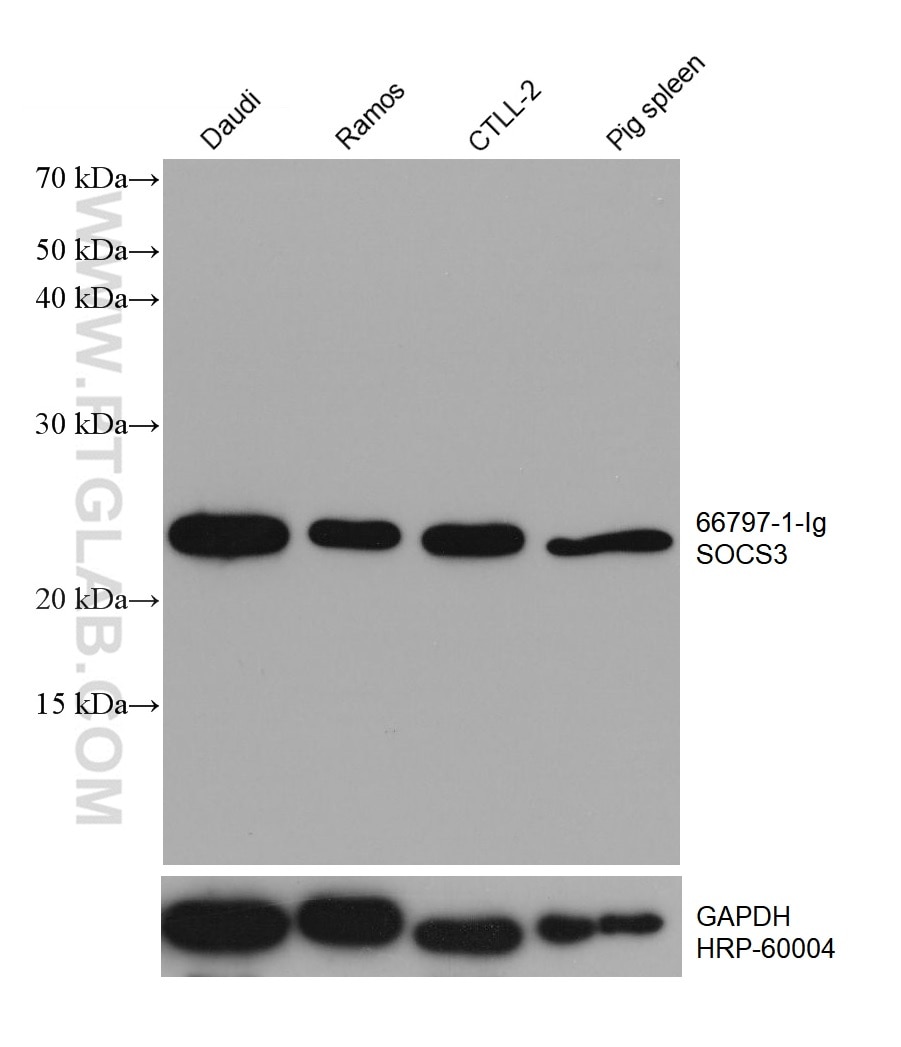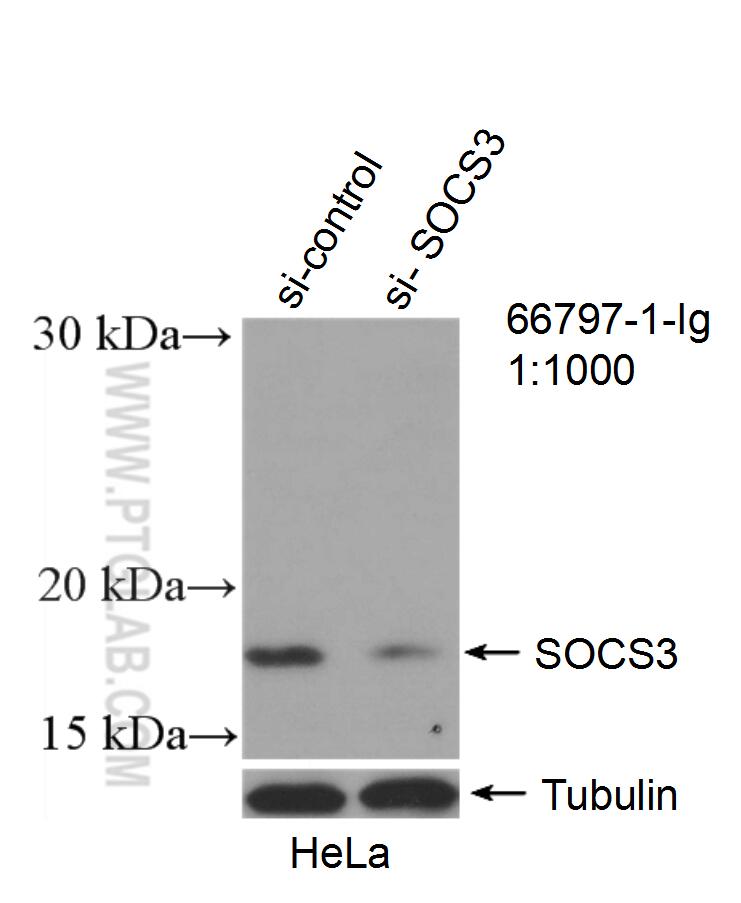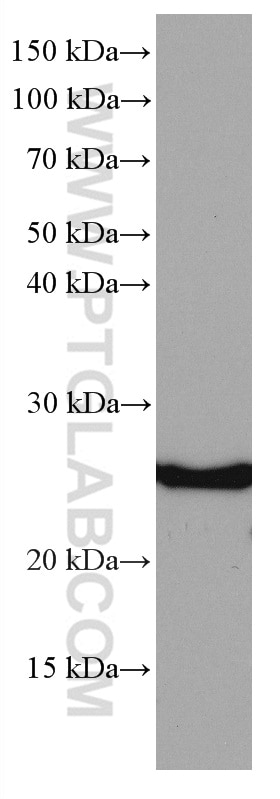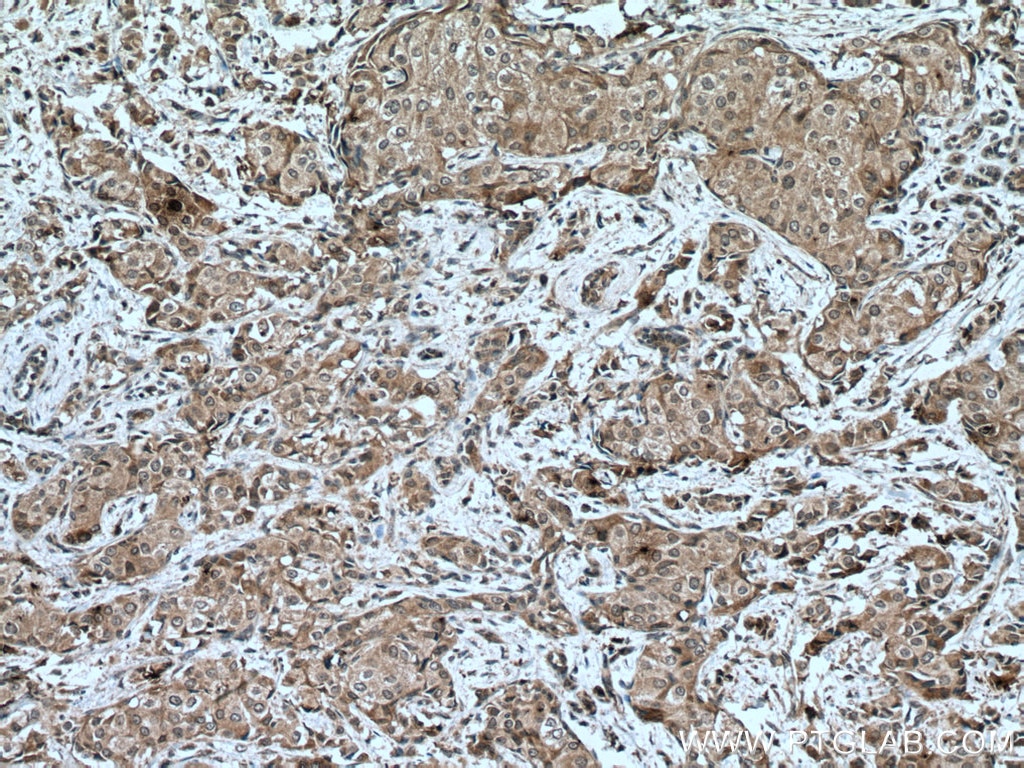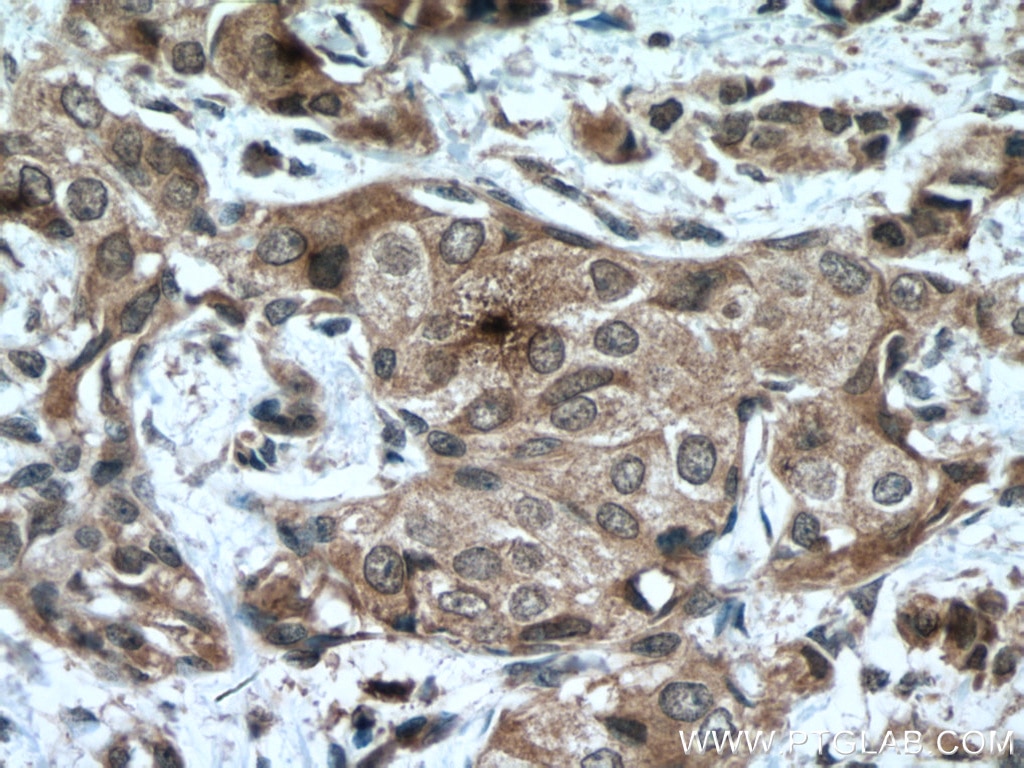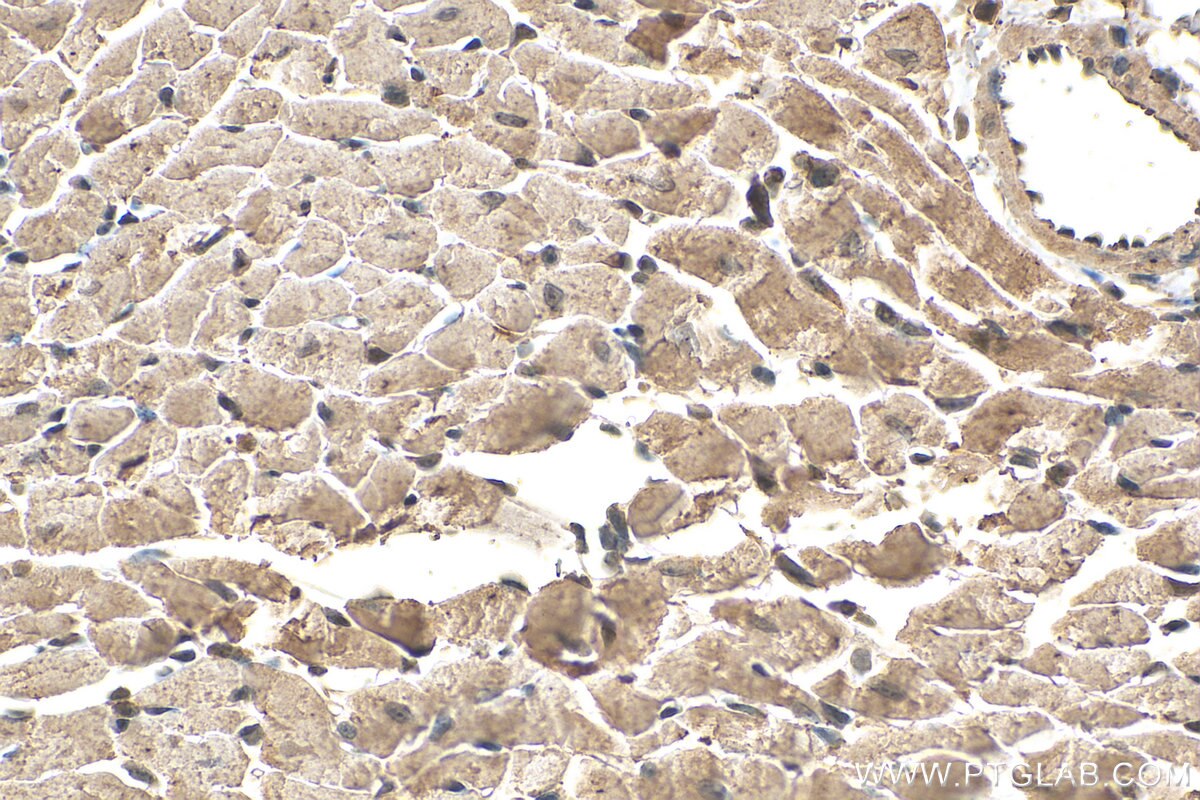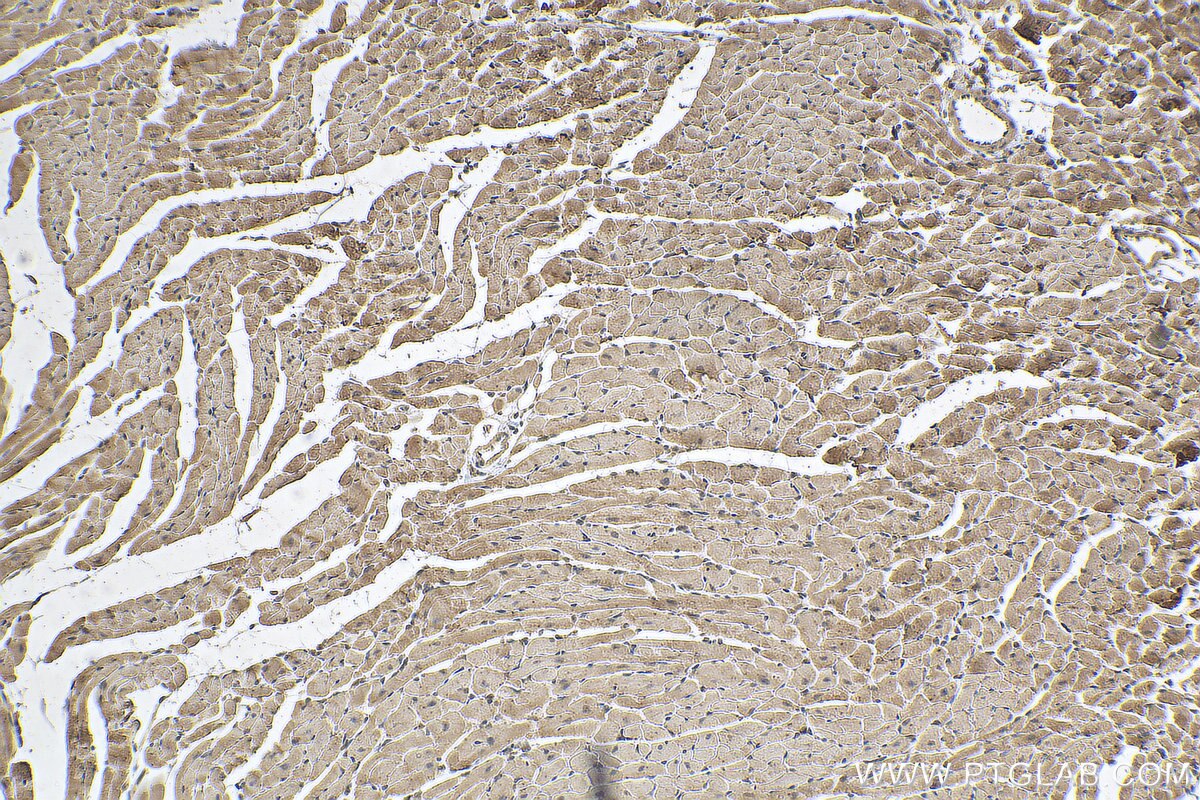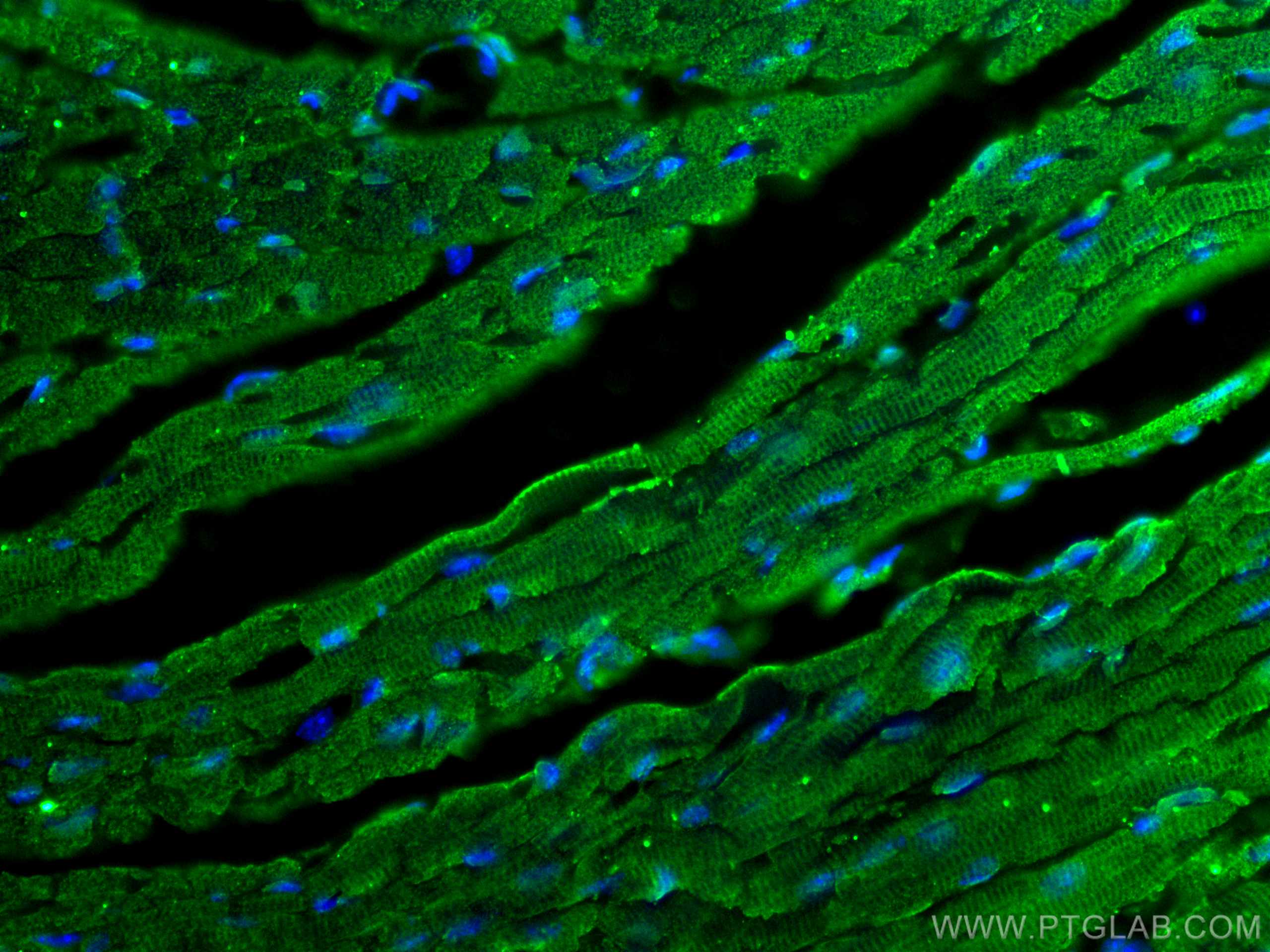Validation Data Gallery
Tested Applications
Recommended dilution
| Application | Dilution |
|---|---|
| It is recommended that this reagent should be titrated in each testing system to obtain optimal results. | |
Product Information
66797-1-PBS targets SOCS3 in WB, IHC, IF-P, Indirect ELISA applications and shows reactivity with Human, mouse samples.
| Tested Reactivity | Human, mouse |
| Host / Isotype | Mouse / IgG1 |
| Class | Monoclonal |
| Type | Antibody |
| Immunogen | SOCS3 fusion protein Ag5386 相同性解析による交差性が予測される生物種 |
| Full Name | suppressor of cytokine signaling 3 |
| Calculated molecular weight | 25 kDa |
| Observed molecular weight | 25 kDa |
| GenBank accession number | BC060858 |
| Gene Symbol | SOCS3 |
| Gene ID (NCBI) | 9021 |
| RRID | AB_2882141 |
| Conjugate | Unconjugated |
| Form | Liquid |
| Purification Method | Protein A purification |
| UNIPROT ID | O14543 |
| Storage Buffer | PBS only |
| Storage Conditions | Store at -80°C. |
Background Information
Suppressor of cytokine signaling 3 (SOCS3) is a member of SOCS family that these proteins induced to attenuate cytokine signal transduction in response to signals from a diverse range of cytokines and growth factors. SOCS3 is a negative regulatory protein that inhibits signaling induced by IL-6 via preventing JAK mediated activation of STAT3. However SOCS3 can positively regulate the ERK-MAPK pathway, inhibit the NF-kB pathway (PMID:26429311,25035930). In addition, SOCS3 brings a great impact on immune responses by inhibiting signaling stimulus, such as LPS, type I and type II IFNs, and IL-12. SOCS3 is widely expressed in heart, placenta, skeletal muscle, peripheral blood leukocytes, fetal and adult lung, and fetal liver and kidney (PMID: 22961088). Dysregulation of SOCS3 functions can cause a variety of diseases, including allergy, autoimmune diseases, inflammation and cancer (PMID:26429311).
